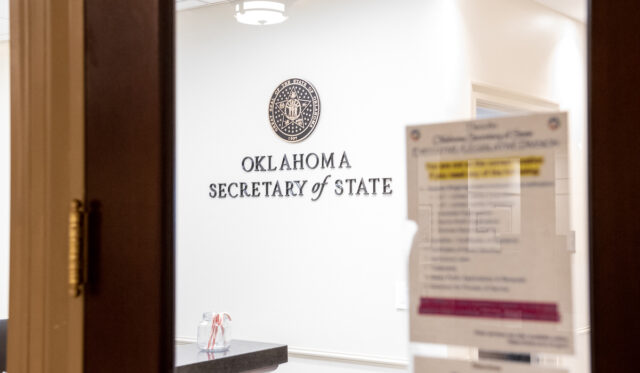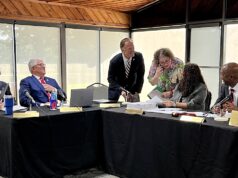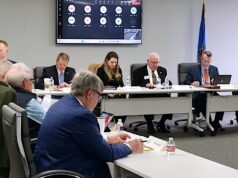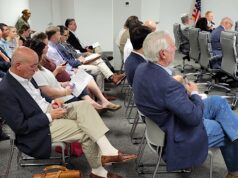
If you think your summer has been hectic, consider the year state lawmakers are having. It wasn’t that long ago when special sessions of the Oklahoma Legislature were considered rare, but on Tuesday, Oct. 3, legislators are set to convene for the second special session of 2023.
In the meantime, state government continues to churn. The following Oklahoma state government roundup summarizes meetings and events that occurred over the past week.
Broadband office seeks proposals to expand high-speed internet

A month after disconnecting its list of potential broadband projects that had been submitted more than a year ago, the Oklahoma Broadband Office is launching a new process for internet service providers to seek $374 million in American Rescue Plan Act funding for expanding access to reliable and affordable high-speed internet service in Oklahoma.
Starting today, proposals can be submitted by ISPs through a portal on the office’s website. The portal is scheduled to close Monday, Oct. 9.
The OBO discarded its original proposals after hearing complaints for months from internet service providers and growing concerns from its governing board members. Executive director Mike Sanders said a review of the previously proposed projects and supplemental inquiries showed that some of the state’s most challenging geographical areas would not be serviced under the OBO’s original criteria, which were adopted in July despite concerns from the Attorney General’s Office.
This is the first grant program administered by the OBO. Others will follow, including $167.7 million from the ARPA Capital Projects Fund and $797.4 million in Broadband Equity, Access and Deployment (BEAD) funds.
The ARPA funds have to be allocated by end of next year, Sanders said. Projects funded by that money must be operational by the end of 2026.
“I believe with the policies, I believe with the procedures that we have put in place, with the guidance from our federal partners, with our board, we are absolutely headed in the right direction,” Sanders said Tuesday.
After the proposal submission window closes, an Overbuild Prevention Contest Process will be launched to allow ISPs to review the proposals and help ensure no funding is awarded to provide service to homes and businesses that already have high-speed internet access.
The Oklahoma Broadband Governing Board gave its approval to the rebooted process when it met Tuesday, Sept. 12. The board, which provides oversight of the OBO, will have final approval over projects recommended by the office for funding. That action is anticipated to occur in January.
Full details about the ARPA grant process, including the Notice of Funding Opportunity may be found here.
Current data from the Federal Communications Commission show more than 728,000 people, or some 18 percent of Oklahomans, lack access to high-speed internet service.
A recent report by allconnect shows average internet speeds in the U.S. have consistently increased every year since the 1990s. It showed the average download speed in the U.S. in 2017 was 30.74 Mbps and the average download speed in the U.S. in the first half of 2023 was 138.90 Mbps. The U.S. is ranked seventh in the world for median internet speed.
OTA wins conditional approval for $500 million in revenue bonds
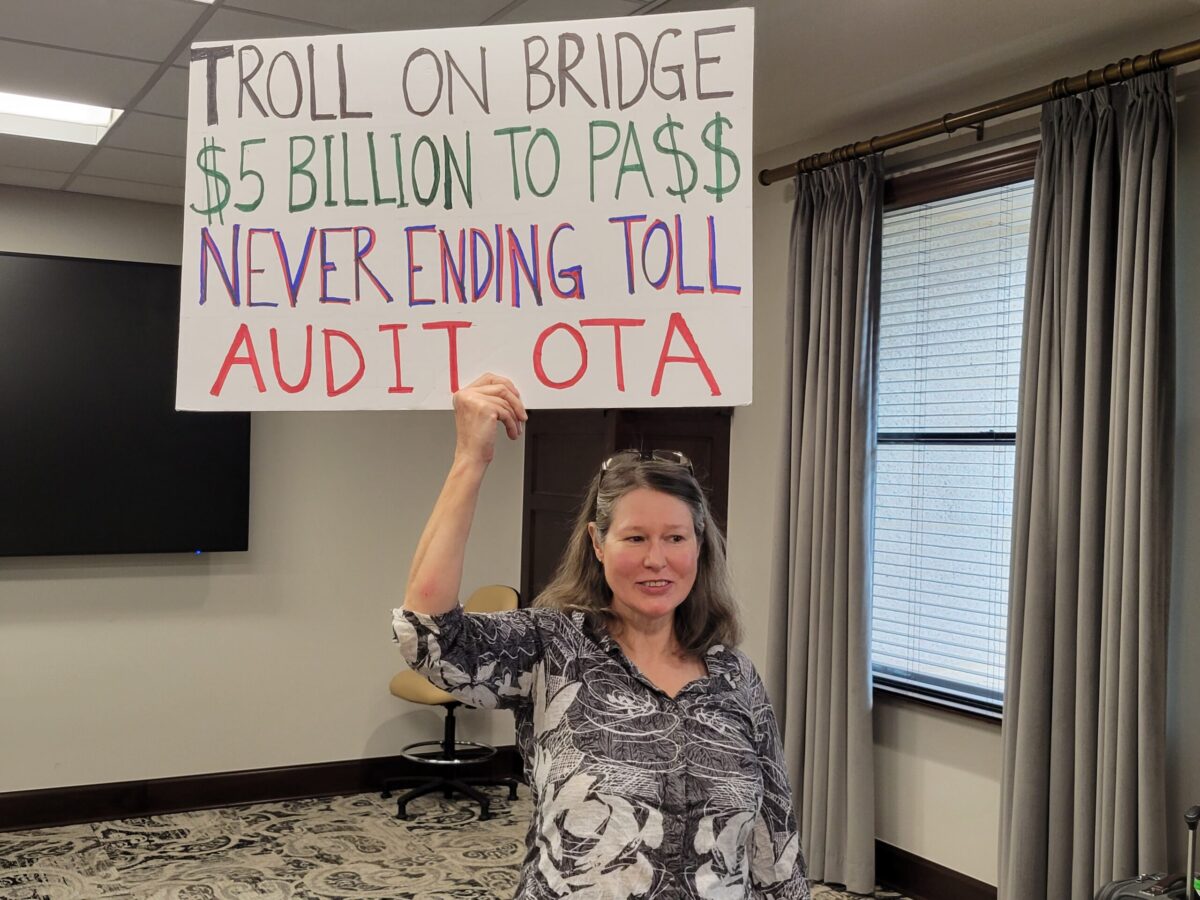
The Oklahoma Turnpike Authority could be in the bond market as early as next month after it received conditional approval from a state oversight board to issue $500 million in second senior lien revenue bonds to fund its long-range expansion program.
The Oklahoma Council of Bond Oversight voted 3-1 Monday, Sept. 11, to approve OTA’s request based on several recommendations, such as the resolution or dismissal of a petition for a rehearing before the state Supreme Court over its August decision validating the debt, as well as other conditions typical to bond issuances, including bond, underwriter and disclosure counsel opinions prior to pricing and closing.
The debt issuance would be the first for OTA’s $5 billion, 15-year ACCESS Oklahoma program, which ran into legal delays and political opposition by the City of Norman and area residents who stand to lose their homes to the expansion.
In a 6-3 decision last month, the Oklahoma Supreme Court approved a request by OTA to validate $500 million in bonds for ACCESS Oklahoma, a process that is required before bonds can be sold to pay for the projects. ACCESS stands for Advancing and Connecting Communities and Economies Safely Statewide, and Gov. Kevin Stitt announced the project in February 2022. The project includes expanding the Will Rogers Turnpike and much of the John Kilpatrick Turnpike to six lanes, while adding new connector loops in the Oklahoma City and Norman metro areas.
Secretary of Transportation Tim Gatz, who also serves as OTA’s executive director, said it may be several years before actual construction begins on the project’s controversial south extension, which would divert Interstate 35 traffic east around Norman and Oklahoma City with a connection near Purcell.
The first work on the ACCESS Oklahoma project likely would be on the east end of the Turner Turnpike that connects to an existing six-lane section. Work on that could start early next year, Gatz said. He said earlier that it may be several years before actual construction begins on the project’s south extension.
“I always want to make sure that folks understand that this is not something that the Turnpike Authority takes lightly,” he said Sept. 11. “We work very hard to address every concern that’s raised during the course of these bond issuances and will continue to do so.”
The revenue bonds do not represent a debt to the state of Oklahoma, Gatz said.
“They’re Turnpike Authority-issued bonds, and they will be supported in the future by the revenues that are generated by the turnpike system. So a true user fee,” he said.
Opponents of the project, most with homes that could be in the way of the south extension, carried signs and crowded into a meeting room at the State Capitol to try to persuade the Council of Bond Oversight to deny OTA’s request. Before the meeting, several residents wrote letters to council members pleading their case.
Amy Cerato, president of Pike Off OTA and Oklahomans for Responsible Transportation, was among those who wrote to the council. She said OTA’s failure to obtain and certify a valid traffic and revenue study is a major trust violation and should mean that the agency cannot issue bonds for a new turnpike until proper studies are completed and vetted.
Pardon and Parole Board chairman accused of misconduct
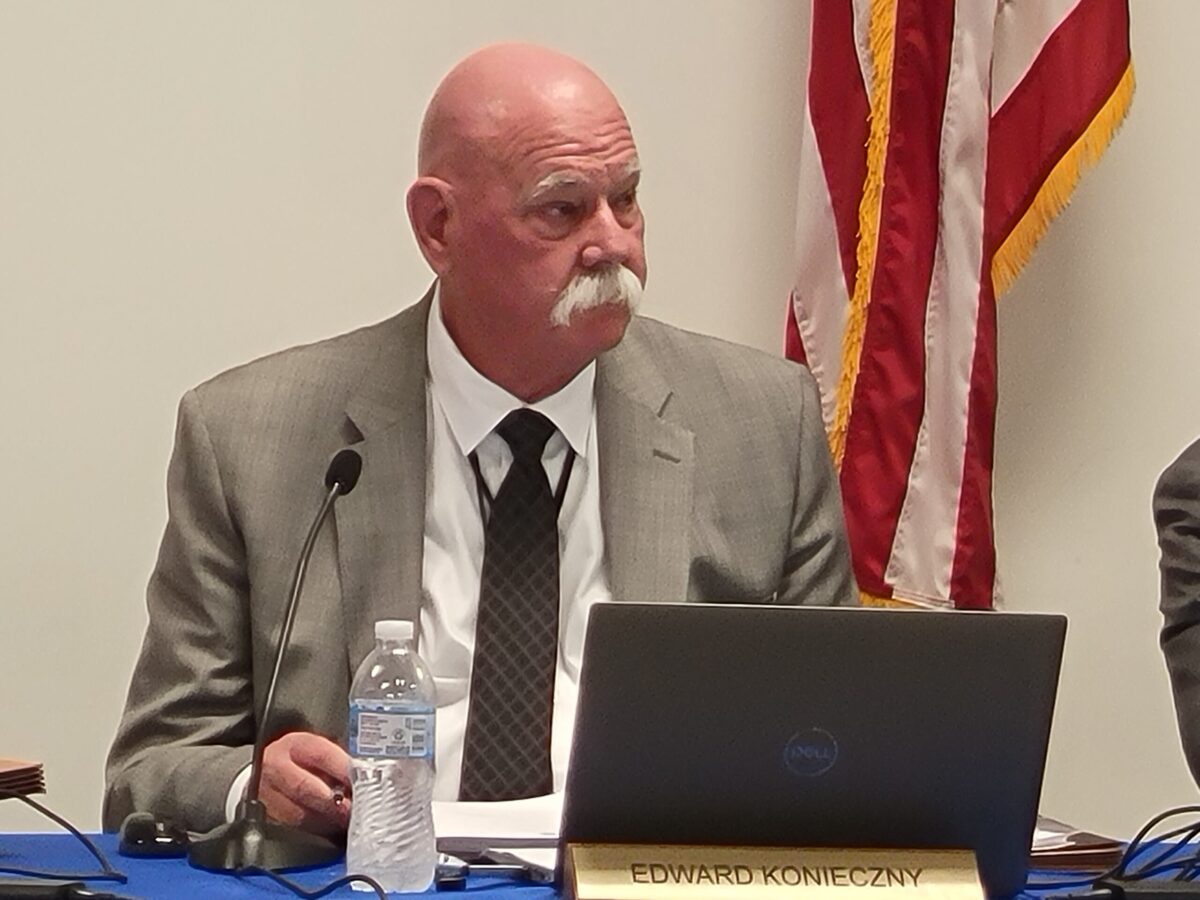
A week after being identified as the retired Episcopalian bishop accused by a woman of making unwanted physical contact with her last year, the acting chairman of the Oklahoma Pardon and Parole Board said he is not stepping down.
Before Monday’s meeting of the Pardon and Parole Board, Ed Konieczny declined to answer questions about the allegation. But later in the week, attorney William Cathcart issued a statement on his behalf.
“To be direct, no sexual misconduct or inappropriate verbal comments occurred,” Konieczny said in the statement. “With the Title IV review process completed, I am committed to fulfilling my duties on the Pardon and Parole Board.”
The Title IV process of the Episcopal Church requires confidentiality during a review of allegations, he said. It is intended to “resolve conflicts by promoting healing, repentance, forgiveness, restitution, justice, amendment of life, and reconciliation among all involved or affected.”
The complaint was made by Julia Ayala Harris, an Oklahoman who has served the Episcopal Church as a lay leader and in its House of Deputies. She was elected last year to serve as president of the House of Delegates.
Konieczny served as bishop of the Diocese of Oklahoma until he retired in 2021. Harris and Konieczny served together from 2015 to 2022 as members of the Executive Council, the Episcopal Church’s governing body between meetings of the General Convention.
In a letter to deputies Aug. 30, Ayala Harris wrote that she was physically overpowered by a retired bishop July 9, 2022, shortly after she was elected president in Baltimore.
“I was physically overpowered and lost bodily autonomy by a retired bishop waiting for my arrival to greet our colleagues in the House of Bishops,” she wrote. “This, along with some accompanying inappropriate verbal statements, compelled me to submit a Title IV complaint via my chancellor to the intake officer in the Office of Pastoral Development. A bishop who witnessed the incident also filed a report to the intake officer within 24 hours after the incident.
“Despite all the evidence, including three eyewitnesses to the incident, the church attorney assigned to this matter has chosen to refer it for a pastoral response instead of discipline,” Ayala Harris wrote.
In his statement, Konieczny said that after “a thorough 13-month review, the church attorney determined a pastoral response was warranted in lieu of disciplinary action. The presiding bishop-designate has recently lifted the Title IV restrictions that prevented me from speaking about this matter.”
Gov. Kevin Stitt appointed Konieczny to the Pardon and Parole Board in January 2022 after the board chairman resigned. The governor reappointed him this year to serve four more years.
“Gov. Stitt is appreciative of Bishop Konieczny’s service to Oklahoma on the Pardon and Parole Board, and he has confidence in his continued service,” the governor’s communications director, Abegail Cave, said in a statement.
Josh Cockroft named secretary of state
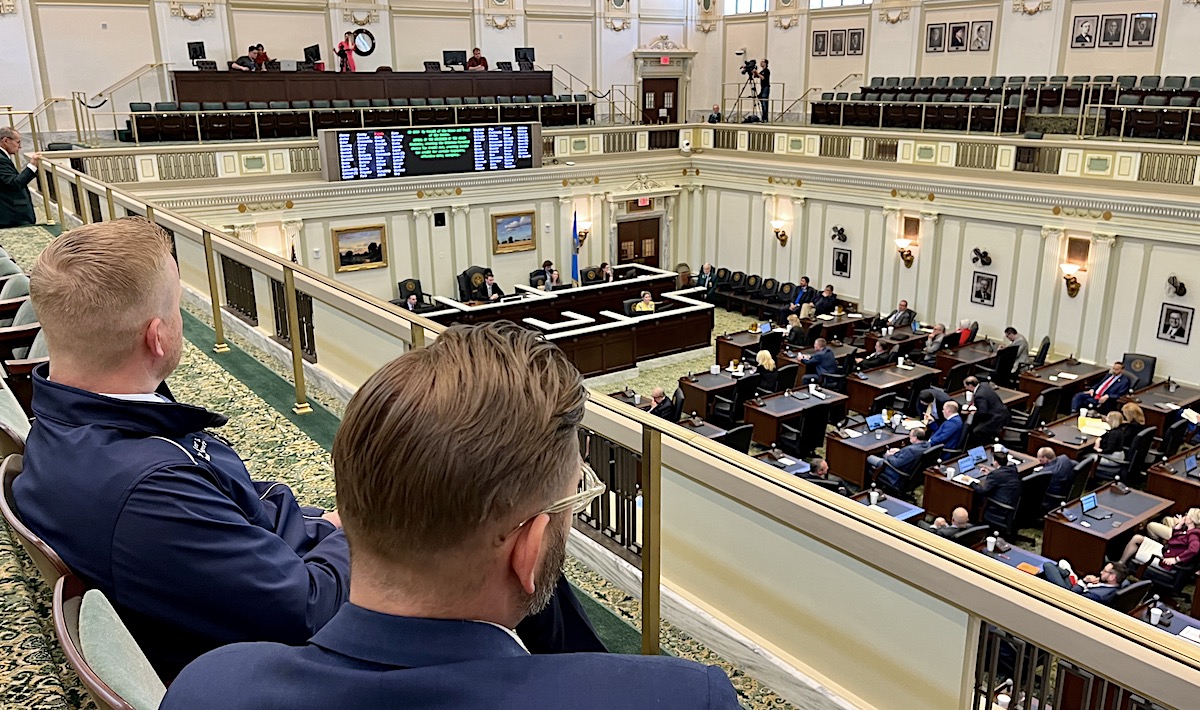
With Brian Bingman resigning to pursue a second campaign for the Oklahoma Corporation Commission, Gov. Kevin Stitt named his deputy chief of staff, Josh Cockroft, as Bingman’s successor.
“Josh is a dedicated and widely respected public servant who has served Oklahomans with integrity for over a decade,” Stitt said in a statement. “His legislative expertise and commitment to our top 10 agenda make him the perfect fit to be the next secretary of state and I’m proud to have him on my team.”
A former House Republican from Wanette, Cockroft assumes control of an office that maintains and certifies the orders, proclamations and appointments of the executive and legislative branches. The secretary of state website can also be searched for public meeting notices and business registration records.
“I look forward to further strengthening relationships with my colleagues in the Legislature and I’m thankful for the opportunity to continue serving my fellow Oklahomans in the Stitt administration as we strive to make our state the best place to live, work, and raise a family.”
Regents meet in Duncan, praise OU Health progress
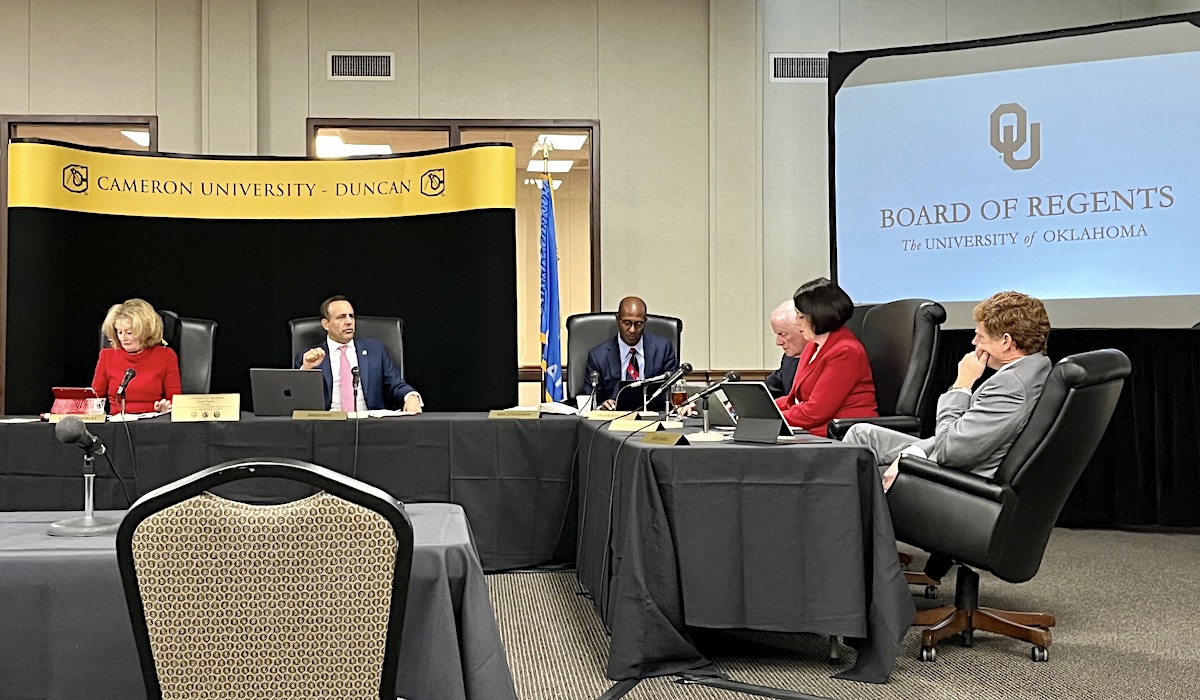
On Sept. 13, the University of Oklahoma Board of Regents approved adjustments to payroll practices, a mobile unit for lung cancer screening and an expansion to the OU College of Nursing. The payroll change will move all OU employees from monthly to biweekly paychecks, and details have been outlined in a FAQ page.
Regents and OU President Joe Harroz also referenced improvement in the financial position of OU Health, the enterprise established in 2018 to develop the university’s fully integrated academic health system. But a massive debt load, industry cost spikes and sagging revenues have presented challenges for OU Health, forcing an adjustment of contracts and staff requirements that frustrated some employees. However, the changes helped the entity’s bottom line, with cash-on-hand numbers improving this spring and summer.
Encouraged by operational progress at OU Health, state legislators approved a one-time appropriation of $96 million in May to support the organization’s provision of uncompensated care to uninsured and underinsured Oklahomans. In July, Standard & Poor’s Global Rankings upgraded OU Health’s bond outlook from “negative” to “stable” with a maintained BB- rating.
“The financial condition of OU Health is materially different. It’s on a really positive trajectory, and it’s a combination of the state stepping up in an important way and covering the cost of care for patients that nobody else will care for, not at some higher rate, but the actual hard costs,” Harroz said after the board’s meeting Sept. 13 on Cameron University’s Duncan campus. “Also cutting costs (and) aligning around the patients in ways that grows volumes and has better outcomes.”
